154 papers:
 STOC-2015-AaronsonA #named #problem #quantum
STOC-2015-AaronsonA #named #problem #quantum- Forrelation: A Problem that Optimally Separates Quantum from Classical Computing (SA, AA), pp. 307–316.
 STOC-2015-SchulmanS #algorithm #analysis #matrix
STOC-2015-SchulmanS #algorithm #analysis #matrix- Analysis of a Classical Matrix Preconditioning Algorithm (LJS, AS), pp. 831–840.
 CIAA-2015-NakanishiY #automaton #problem #quantum
CIAA-2015-NakanishiY #automaton #problem #quantum- Classical and Quantum Counter Automata on Promise Problems (MN, AY), pp. 224–237.
 ICML-2015-DingZSMM #consistency
ICML-2015-DingZSMM #consistency- Yinyang K-Means: A Drop-In Replacement of the Classic K-Means with Consistent Speedup (YD, YZ, XS, MM, TM), pp. 579–587.
 SEKE-2015-Wang #metric #problem
SEKE-2015-Wang #metric #problem- Improved Metrics for Non-Classic Test Prioritization Problems (ZW), pp. 562–566.
 ICMT-J-2012-AtkinsonGT15 #model transformation #modelling #multi
ICMT-J-2012-AtkinsonGT15 #model transformation #modelling #multi- Enhancing classic transformation languages to support multi-level modeling (CA, RG, CVT), pp. 645–666.
 CSL-2015-AminiE #linear #logic #on the
CSL-2015-AminiE #linear #logic #on the- On Classical PCF, Linear Logic and the MIX Rule (SA, TE), pp. 582–596.
 CSL-2015-Berardi #comprehension #higher-order #induction
CSL-2015-Berardi #comprehension #higher-order #induction- Classical and Intuitionistic Arithmetic with Higher Order Comprehension Coincide on Inductive Well-Foundedness (SB), pp. 343–358.
 CSL-2015-BrotherstonV #logic
CSL-2015-BrotherstonV #logic- Sub-classical Boolean Bunched Logics and the Meaning of Par (JB, JV), pp. 325–342.
 LICS-2015-BaazLR #complexity #proving
LICS-2015-BaazLR #complexity #proving- A Note on the Complexity of Classical and Intuitionistic Proofs (MB, AL, GR), pp. 657–666.
 CIAA-2014-BianchiMP #automaton #on the #power of #quantum
CIAA-2014-BianchiMP #automaton #on the #power of #quantum- On the Power of One-Way Automata with Quantum and Classical States (MPB, CM, BP), pp. 84–97.
 ICPR-2014-SamantaC #classification #using
ICPR-2014-SamantaC #classification #using- Indian Classical Dance Classification on Manifold Using Jensen-Bregman LogDet Divergence (SS, BC), pp. 4507–4512.
 KR-2014-MarrellaMS #adaptation #calculus #named #process
KR-2014-MarrellaMS #adaptation #calculus #named #process- SmartPM: An Adaptive Process Management System through Situation Calculus, IndiGolog, and Classical Planning (AM, MM, SS).
 KR-2014-RibeiroW #logic
KR-2014-RibeiroW #logic- Minimal Change in AGM Revision for Non-Classical Logics (MMR, RW).
 CGO-2014-GrosserCHSV #hybrid
CGO-2014-GrosserCHSV #hybrid- Hybrid Hexagonal/Classical Tiling for GPUs (TG, AC, JH, PS, SV), p. 66.
 PPoPP-2014-MaAC #algorithm #analysis #manycore #thread
PPoPP-2014-MaAC #algorithm #analysis #manycore #thread- Theoretical analysis of classic algorithms on highly-threaded many-core GPUs (LM, KA, RDC), pp. 391–392.
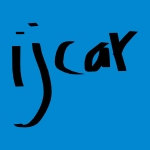 IJCAR-2014-Blanchette0T #induction #logic
IJCAR-2014-Blanchette0T #induction #logic- Unified Classical Logic Completeness — A Coinductive Pearl (JCB, AP, DT), pp. 46–60.
 STOC-2013-BrakerskiLPRS #fault #learning
STOC-2013-BrakerskiLPRS #fault #learning- Classical hardness of learning with errors (ZB, AL, CP, OR, DS), pp. 575–584.
 DLT-J-2012-Csuhaj-Varju13 #automaton
DLT-J-2012-Csuhaj-Varju13 #automaton- P and DP Automata: Unconventional versus Classical Automata (ECV), pp. 995–1008.
 DLT-J-2012-IwamaN13 #quantum #string
DLT-J-2012-IwamaN13 #quantum #string- Recovering Strings in Oracles: Quantum and Classic (KI, HN), pp. 979–994.
 ICALP-v2-2013-Albers #problem #scheduling
ICALP-v2-2013-Albers #problem #scheduling- Recent Advances for a Classical Scheduling Problem (SA), pp. 4–14.
 RE-2013-AlspaughS #development #requirements
RE-2013-AlspaughS #development #requirements- Ongoing software development without classical requirements (TAA, WS), pp. 165–174.
 CSL-2013-Rieg #using
CSL-2013-Rieg #using- Extracting Herbrand trees in classical realizability using forcing (LR), pp. 597–614.
 LICS-2013-LiangM #logic
LICS-2013-LiangM #logic- Unifying Classical and Intuitionistic Logics for Computational Control (CL, DM), pp. 283–292.
 DRR-2012-MazalovW
DRR-2012-MazalovW- Improving isolated and in-context classication of handwritten characters (VM, SMW).
 SAS-2012-Alonso-BlasG #approach #cost analysis #on the
SAS-2012-Alonso-BlasG #approach #cost analysis #on the- On the Limits of the Classical Approach to Cost Analysis (DEAB, SG), pp. 405–421.
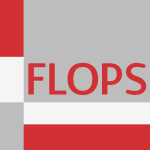 FLOPS-2012-AriolaDHNS #calculus #call-by #semantics
FLOPS-2012-AriolaDHNS #calculus #call-by #semantics- Classical Call-by-Need Sequent Calculi: The Unity of Semantic Artifacts (ZMA, PD, HH, KN, AS), pp. 32–46.
 DLT-J-2011-ZhengQL12 #automaton #finite #quantum
DLT-J-2011-ZhengQL12 #automaton #finite #quantum- Some Languages Recognized by Two-Way Finite Automata with Quantum and Classical States (SZ, DQ, LL), pp. 1117–1130.
 DLT-2012-Csuhaj-Varju #automaton
DLT-2012-Csuhaj-Varju #automaton- P and dP Automata: Unconventional versus Classical Automata (ECV), pp. 7–22.
 DLT-2012-Iwama #quantum #string
DLT-2012-Iwama #quantum #string- Recovering Strings in Oracles: Quantum and Classic (KI), p. 23.
 ICALP-v1-2012-AmbainisBBKOSV #game studies #quantum
ICALP-v1-2012-AmbainisBBKOSV #game studies #quantum- Quantum Strategies Are Better Than Classical in Almost Any XOR Game (AA, AB, KB, DK, RO, JS, MV), pp. 25–37.
 ICALP-v1-2012-LaplanteLR #bound #detection #quantum
ICALP-v1-2012-LaplanteLR #bound #detection #quantum- Classical and Quantum Partition Bound and Detector Inefficiency (SL, VL, JR), pp. 617–628.
 CSL-2012-Aschieri #axiom #interactive
CSL-2012-Aschieri #axiom #interactive- Interactive Realizability for Classical Peano Arithmetic with Skolem Axioms (FA), pp. 31–45.
 CSL-2012-ChaudhuriHM #approach #calculus
CSL-2012-ChaudhuriHM #approach #calculus- A Systematic Approach to Canonicity in the Classical Sequent Calculus (KC, SH, DM), pp. 183–197.
 CSL-2012-HetzlS #first-order #logic
CSL-2012-HetzlS #first-order #logic- Herbrand-Confluence for Cut Elimination in Classical First Order Logic (SH, LS), pp. 320–334.
 LICS-2012-Herbelin #logic #proving
LICS-2012-Herbelin #logic #proving- A Constructive Proof of Dependent Choice, Compatible with Classical Logic (HH), pp. 365–374.
 ICDAR-2011-GaoSWG #documentation #recognition #word
ICDAR-2011-GaoSWG #documentation #recognition #word- Classical Mongolian Words Recognition in Historical Document (GG, XS, HW, YG), pp. 692–697.
 STOC-2011-RegevK #communication #quantum
STOC-2011-RegevK #communication #quantum- Quantum one-way communication can be exponentially stronger than classical communication (OR, BK), pp. 31–40.
 ICALP-v1-2011-AaronsonD #quantum
ICALP-v1-2011-AaronsonD #quantum- Advice Coins for Classical and Quantum Computation (SA, AD), pp. 61–72.
 ECIR-2011-TrieschniggH #question
ECIR-2011-TrieschniggH #question- Classic Children’s Literature — Difficult to Read? (DT, CH), pp. 691–694.
 ICML-2011-KadriRPDR #functional #kernel
ICML-2011-KadriRPDR #functional #kernel- Functional Regularized Least Squares Classication with Operator-valued Kernels (HK, AR, PP, ED, AR), pp. 993–1000.
 ECOOP-2011-OstermannGKR #composition #information management
ECOOP-2011-OstermannGKR #composition #information management- Revisiting Information Hiding: Reflections on Classical and Nonclassical Modularity (KO, PGG, CK, TR), pp. 155–178.
 POPL-2011-JoishaSBBC #automation #compilation #effectiveness #optimisation #parallel #reuse #thread
POPL-2011-JoishaSBBC #automation #compilation #effectiveness #optimisation #parallel #reuse #thread- A technique for the effective and automatic reuse of classical compiler optimizations on multithreaded code (PGJ, RSS, PB, HJB, DRC), pp. 623–636.
 TLCA-2011-AriolaHS #call-by
TLCA-2011-AriolaHS #call-by- Classical Call-by-Need and Duality (ZMA, HH, AS), pp. 27–44.
 TLCA-2011-Miquel #bibliography
TLCA-2011-Miquel #bibliography- A Survey of Classical Realizability (AM), pp. 1–2.
 CIAA-2010-CastiglioneNS #algorithm #automaton #product line
CIAA-2010-CastiglioneNS #algorithm #automaton #product line- A Challenging Family of Automata for Classical Minimization Algorithms (GC, CN, MS), pp. 251–260.
 ICFP-2010-MazurakZ #concurrent #linear #logic #named
ICFP-2010-MazurakZ #concurrent #linear #logic #named- Lolliproc: to concurrency from classical linear logic via curry-howard and control (KM, SZ), pp. 39–50.
 CIKM-2010-NakatsujiFTUFI #music #novel #recommendation
CIKM-2010-NakatsujiFTUFI #music #novel #recommendation- Classical music for rock fans?: novel recommendations for expanding user interests (MN, YF, AT, TU, KF, TI), pp. 949–958.
 KR-2010-CiabattoniR #fuzzy #monad #on the
KR-2010-CiabattoniR #fuzzy #monad #on the- On the Classical Content of Monadic G with Involutive Negation and its Application to a Fuzzy Medical Expert System (AC, PR).
 FSE-2010-Johnson10a #research
FSE-2010-Johnson10a #research- Avoiding the classic catastrophic computer science failure mode: 2010 acm sigsoft outstanding research award talk (REJ), pp. 5–6.
 CSL-2010-Chaudhuri #logic
CSL-2010-Chaudhuri #logic- Classical and Intuitionistic Subexponential Logics Are Equally Expressive (KC), pp. 185–199.
 CSL-2010-CoeckeP #category theory #quantum
CSL-2010-CoeckeP #category theory #quantum- Environment and Classical Channels in Categorical Quantum Mechanics (BC, SP), pp. 230–244.
 CSL-2010-Santo #canonical #deduction #towards
CSL-2010-Santo #canonical #deduction #towards- Towards a Canonical Classical Natural Deduction System (JES), pp. 290–304.
 ICLP-J-2010-HouCD #fixpoint #logic #rule-based
ICLP-J-2010-HouCD #fixpoint #logic #rule-based- FO(FD): Extending classical logic with rule-based fixpoint definitions (PH, BdC, MD), pp. 581–596.
 IJCAR-2010-Nivelle #logic
IJCAR-2010-Nivelle #logic- Classical Logic with Partial Functions (HdN), pp. 203–217.
 LICS-2010-GuglielmiGS #logic
LICS-2010-GuglielmiGS #logic- Breaking Paths in Atomic Flows for Classical Logic (AG, TG, LS), pp. 284–293.
 ICPC-2009-HindleGGH #automation #category theory #maintenance #scalability
ICPC-2009-HindleGGH #automation #category theory #maintenance #scalability- Automatic classication of large changes into maintenance categories (AH, DMG, MWG, RCH), pp. 30–39.
 ICALP-v1-2009-KobayashiGNR #communication #network #quantum
ICALP-v1-2009-KobayashiGNR #communication #network #quantum- General Scheme for Perfect Quantum Network Coding with Free Classical Communication (HK, FLG, HN, MR), pp. 622–633.
 DHM-2009-McInnesSP #reliability #using
DHM-2009-McInnesSP #reliability #using- Within and Between-Subject Reliability Using Classic Jack for Ergonomic Assessments (BM, AS, JP), pp. 653–660.
 ICEIS-AIDSS-2009-RoperoGLC #fuzzy #information management #logic #novel #web
ICEIS-AIDSS-2009-RoperoGLC #fuzzy #information management #logic #novel #web- Term Weighting: Novel Fuzzy Logic based Method Vs. Classical TF-IDF Method for Web Information Extraction (JR, AG, CL, AC), pp. 130–137.
 POPL-2009-BrotherstonC #logic #reasoning
POPL-2009-BrotherstonC #logic #reasoning- Classical BI: a logic for reasoning about dualising resources (JB, CC), pp. 328–339.
 CSL-2009-Munch-Maccagnoni
CSL-2009-Munch-Maccagnoni- Focalisation and Classical Realisability (GMM), pp. 409–423.
 TLCA-2009-HerbelinZ #call-by #deduction #λ-calculus
TLCA-2009-HerbelinZ #call-by #deduction #λ-calculus- An Operational Account of Call-by-Value Minimal and Classical λ-Calculus in “Natural Deduction” Form (HH, SZ), pp. 142–156.
 TLCA-2009-Miquel
TLCA-2009-Miquel- Relating Classical Realizability and Negative Translation for Existential Witness Extraction (AM), pp. 188–202.
 DATE-2008-RealCCDV #analysis #hardware
DATE-2008-RealCCDV #analysis #hardware- Defeating classical Hardware Countermeasures: a new processing for Side Channel Analysis (DR, CC, JC, MD, FV), pp. 1274–1279.
 STOC-2008-Gavinsky #interactive #quantum
STOC-2008-Gavinsky #interactive #quantum- Classical interaction cannot replace a quantum message (DG), pp. 95–102.
 STOC-2008-JainKN #bound #communication #complexity #theorem
STOC-2008-JainKN #bound #communication #complexity #theorem- Direct product theorems for classical communication complexity via subdistribution bounds: extended abstract (RJ, HK, AN), pp. 599–608.
 FLOPS-2008-Kobayashi08a #backtracking #continuation
FLOPS-2008-Kobayashi08a #backtracking #continuation- A New Translation for Semi-classical Theories — Backtracking without CPS (SK), pp. 210–223.
 ICALP-C-2008-HallgrenKSZ #protocol #quantum #verification
ICALP-C-2008-HallgrenKSZ #protocol #quantum #verification- Making Classical Honest Verifier Zero Knowledge Protocols Secure against Quantum Attacks (SH, AK, PS, SZ), pp. 592–603.
 ICPR-2008-SinghNGBSP #hybrid #random #using
ICPR-2008-SinghNGBSP #hybrid #random #using- Hybrid SVM — Random Forest classication system for oral cancer screening using LIF spectra (RKS, SKN, LG, SB, CS, KMP), pp. 1–4.
 KR-2008-HinrichsG #finite #how #injection #logic #what
KR-2008-HinrichsG #finite #how #injection #logic #what- Injecting the How into the What: Investigating a Finite Classical Logic (TLH, MRG), pp. 92–192.
 CC-2008-KhedkerK #analysis #data flow #interprocedural #performance #precise #string
CC-2008-KhedkerK #analysis #data flow #interprocedural #performance #precise #string- Efficiency, Precision, Simplicity, and Generality in Interprocedural Data Flow Analysis: Resurrecting the Classical Call Strings Method (UPK, BK), pp. 213–228.
 ICLP-2008-DeneckerV #integration #knowledge base #logic programming
ICLP-2008-DeneckerV #integration #knowledge base #logic programming- Building a Knowledge Base System for an Integration of Logic Programming and Classical Logic (MD, JV), pp. 71–76.
 ICLP-2008-NearBF #declarative #first-order #logic #named #proving #theorem proving
ICLP-2008-NearBF #declarative #first-order #logic #named #proving #theorem proving- αleanTAP: A Declarative Theorem Prover for First-Order Classical Logic (JPN, WEB, DPF), pp. 238–252.
 IJCAR-2008-BenzmullerPTF #automation #higher-order #logic #named #proving #theorem proving
IJCAR-2008-BenzmullerPTF #automation #higher-order #logic #named #proving #theorem proving- LEO-II — A Cooperative Automatic Theorem Prover for Classical Higher-Order Logic (System Description) (CB, LCP, FT, AF), pp. 162–170.
 IJCAR-2008-Otten #agile #logic #performance #proving #theorem proving
IJCAR-2008-Otten #agile #logic #performance #proving #theorem proving- leanCoP 2.0and ileanCoP 1.2: High Performance Lean Theorem Proving in Classical and Intuitionistic Logic (System Descriptions) (JO), pp. 283–291.
 QoSA-2007-DuzbayevP #adaptation
QoSA-2007-DuzbayevP #adaptation- Pre-emptive Adaptation Through Classical Control Theory (ND, IP), pp. 164–181.
 ICDAR-2007-NamboodiriNJ #on the #using
ICDAR-2007-NamboodiriNJ #on the #using- On Using Classical Poetry Structure for Indian Language Post-Processing (AMN, PJN, CVJ), pp. 1238–1242.
 ICALP-2007-IwamaNRY #bound #communication #complexity #quantum
ICALP-2007-IwamaNRY #bound #communication #complexity #quantum- Unbounded-Error One-Way Classical and Quantum Communication Complexity (KI, HN, RR, SY), pp. 110–121.
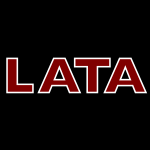 LATA-2007-AblayevG #branch #complexity #quantum #simulation #source code
LATA-2007-AblayevG #branch #complexity #quantum #simulation #source code- Classical Simulation Complexity of Quantum Branching Programs (FMA, AG), pp. 49–56.
 ECIR-2007-Broder #generative #information retrieval #web
ECIR-2007-Broder #generative #information retrieval #web- The Next Generation Web Search and the Demise of the Classic IR Model (AZB), p. 1.
 SIGIR-2007-Al-Maskari #effectiveness #how #information retrieval #interactive #metric #question
SIGIR-2007-Al-Maskari #effectiveness #how #information retrieval #interactive #metric #question- Beyond classical measures: how to evaluate the effectiveness of interactive information retrieval system? (AAM), p. 915.
 CSL-2007-FournierGGZ #logic
CSL-2007-FournierGGZ #logic- Classical and Intuitionistic Logic Are Asymptotically Identical (HF, DG, AG, MZ), pp. 177–193.
 CSL-2007-Miquel #calculus
CSL-2007-Miquel #calculus- Classical Program Extraction in the Calculus of Constructions (AM), pp. 313–327.
 LICS-2007-Oliva #linear #logic
LICS-2007-Oliva #linear #logic- Modified Realizability Interpretation of Classical Linear Logic (PO), pp. 431–442.
 ESOP-2006-SummersB #calculus #morphism #polymorphism
ESOP-2006-SummersB #calculus #morphism #polymorphism- Approaches to Polymorphism in Classical Sequent Calculus (AJS, SvB), pp. 84–99.
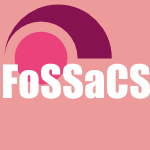 FoSSaCS-2006-PereiraP
FoSSaCS-2006-PereiraP- Register Allocation After Classical SSA Elimination is NP-Complete (FMQP, JP), pp. 79–93.
 ICALP-v1-2006-EpsteinL #problem #robust
ICALP-v1-2006-EpsteinL #problem #robust- A Robust APTAS for the Classical Bin Packing Problem (LE, AL), pp. 214–225.
 ICALP-v2-2006-DodisR #on the #quantum #using
ICALP-v2-2006-DodisR #on the #quantum #using- On the Impossibility of Extracting Classical Randomness Using a Quantum Computer (YD, RR), pp. 204–215.
 SAC-2006-GotoC #analysis #logic
SAC-2006-GotoC #analysis #logic- A quantitative analysis of implicational paradoxes in classical mathematical logic (YG, JC), pp. 42–43.
 STOC-2005-Shi #communication #complexity #metric #quantum
STOC-2005-Shi #communication #complexity #metric #quantum- Tensor norms and the classical communication complexity of nonlocal quantum measurement (YS), pp. 460–467.
 MoDELS-2005-CraneD #modelling #uml
MoDELS-2005-CraneD #modelling #uml- UML Vs. Classical Vs. Rhapsody Statecharts: Not All Models Are Created Equal (MLC, JD), pp. 97–112.
 CSL-2005-VIICH #control flow #distributed #logic
CSL-2005-VIICH #control flow #distributed #logic- Distributed Control Flow with Classical Modal Logic (TMV, KC, RH), pp. 51–69.
 SAT-2005-BelovS #logic #satisfiability
SAT-2005-BelovS #logic #satisfiability- Substitutional Definition of Satisfiability in Classical Propositional Logic (AB, ZS), pp. 31–45.
 TLCA-2005-Herbelin #logic #on the
TLCA-2005-Herbelin #logic #on the- On the Degeneracy of Σ-Types in Presence of Computational Classical Logic (HH), pp. 209–220.
 TLCA-2005-LamarcheS #logic #proving
TLCA-2005-LamarcheS #logic #proving- Naming Proofs in Classical Propositional Logic (FL, LS), pp. 246–261.
 TLCA-2005-SelingerV #quantum #λ-calculus
TLCA-2005-SelingerV #quantum #λ-calculus- A λ Calculus for Quantum Computation with Classical Control (PS, BV), pp. 354–368.
 STOC-2004-Bar-YossefJK #communication #complexity #exponential #quantum
STOC-2004-Bar-YossefJK #communication #complexity #exponential #quantum- Exponential separation of quantum and classical one-way communication complexity (ZBY, TSJ, IK), pp. 128–137.
 STOC-2004-SanthaS #quantum #query
STOC-2004-SanthaS #quantum #query- Quantum and classical query complexities of local search are polynomially related (MS, MS), pp. 494–501.
 ICALP-2004-Toftdal #analysis #effectiveness #logic #theorem
ICALP-2004-Toftdal #analysis #effectiveness #logic #theorem- A Calibration of Ineffective Theorems of Analysis in a Hierarchy of Semi-classical Logical Principles: (Extended Abstract) (MT), pp. 1188–1200.
 KR-2004-Rintanen #case study
KR-2004-Rintanen #case study- Phase Transitions in Classical Planning: An Experimental Study (JR), pp. 710–719.
 CSL-2004-Hyland #abstract interpretation #calculus #proving
CSL-2004-Hyland #abstract interpretation #calculus #proving- Abstract Interpretation of Proofs: Classical Propositional Calculus (MH), pp. 6–21.
 ICLP-2004-Munoz-HernandezM #implementation
ICLP-2004-Munoz-HernandezM #implementation- Implementation Results in Classical Constructive Negation (SMH, JJMN), pp. 284–298.
 LICS-2004-FuhrmannP #geometry #interactive #logic #on the
LICS-2004-FuhrmannP #geometry #interactive #logic #on the- On the Geometry of Interaction for Classical Logic (CF, DJP), pp. 211–220.
 DAC-2003-Spirakis #challenge #design #question
DAC-2003-Spirakis #challenge #design #question- Leading-edge and future design challenges — is the classical EDA ready? (GS), p. 416.
 STOC-2003-Gurvits #complexity #problem #quantum
STOC-2003-Gurvits #complexity #problem #quantum- Classical deterministic complexity of Edmonds’ Problem and quantum entanglement (LG), pp. 10–19.
 ICALP-2003-AriolaH #logic
ICALP-2003-AriolaH #logic- Minimal Classical Logic and Control Operators (ZMA, HH), pp. 871–885.
 CSL-2003-Brunnler #logic
CSL-2003-Brunnler #logic- Atomic Cut Elimination for classical Logic (KB), pp. 86–97.
 LICS-2003-LaurentR #linear #logic
LICS-2003-LaurentR #linear #logic- About Translations of Classical Logic into Polarized Linear Logic (OL, LR), pp. 11–20.
 ICML-2002-KamvarKM #algorithm #approach #clustering #modelling #using
ICML-2002-KamvarKM #algorithm #approach #clustering #modelling #using- Interpreting and Extending Classical Agglomerative Clustering Algorithms using a Model-Based approach (SDK, DK, CDM), pp. 283–290.
 KR-2002-Lin #equivalence #logic programming #source code
KR-2002-Lin #equivalence #logic programming #source code- Reducing Strong Equivalence of Logic Programs to Entailment in Classical Propositional Logic (FL), pp. 170–176.
 CSL-2002-Hasegawa #linear #logic
CSL-2002-Hasegawa #linear #logic- Classical Linear Logic of Implications (MH), pp. 458–472.
 STOC-2001-Valiant #polynomial #quantum
STOC-2001-Valiant #polynomial #quantum- Quantum computers that can be simulated classically in polynomial time (LGV), pp. 114–123.
 ICALP-2001-Servedio #learning #quantum
ICALP-2001-Servedio #learning #quantum- Separating Quantum and Classical Learning (RAS), pp. 1065–1080.
 ICEIS-v1-2001-CarvalhoRMNK #fuzzy #logic #quantifier #using
ICEIS-v1-2001-CarvalhoRMNK #fuzzy #logic #quantifier #using- Quantification of the Emotional Quotient of the Intelligence using the Classic and Fuzzy Logic (LFdC, RR, RRdM, SMN, CK), pp. 361–365.
 CSL-2001-Akama #algebra #combinator #logic #towards #λ-calculus
CSL-2001-Akama #algebra #combinator #logic #towards #λ-calculus- Limiting Partial Combinatory Algebras towards Infinitary λ-Calculi and Classical Logic (YA), pp. 399–413.
 IJCAR-2001-HodasT #agile #first-order #implementation #linear #logic #named #proving #theorem proving
IJCAR-2001-HodasT #agile #first-order #implementation #linear #logic #named #proving #theorem proving- lolliCop — A Linear Logic Implementation of a Lean Connection-Method Theorem Prover for First-Order Classical Logic (JSH, NT), pp. 670–684.
 TLCA-2001-Groote #deduction #normalisation
TLCA-2001-Groote #deduction #normalisation- Strong Normalization of Classical Natural Deduction with Disjunction (PdG), pp. 182–196.
 TLCA-2001-Laird #nondeterminism
TLCA-2001-Laird #nondeterminism- A Deconstruction of Non-deterministic Classical Cut Elimination (JL), pp. 268–282.
 CL-2000-Denecker #induction #logic
CL-2000-Denecker #induction #logic- Extending Classical Logic with Inductive Definitions (MD), pp. 703–717.
 STOC-1999-Raz #communication #complexity #exponential #quantum
STOC-1999-Raz #communication #complexity #exponential #quantum- Exponential Separation of Quantum and Classical Communication Complexity (RR), pp. 358–367.
 ICLP-1999-KangT #linear #logic programming #programming language #static analysis
ICLP-1999-KangT #linear #logic programming #programming language #static analysis- A Static Analysis for Classical Linear Logic Programming Language (KSK, NT), p. 610.
 TLCA-1999-UrbanB #logic #normalisation
TLCA-1999-UrbanB #logic #normalisation- Strong Normalisation of Cut-Elimination in Classical Logic (CU, GMB), pp. 365–380.
 STOC-1998-BuhrmanCW #communication #quantum
STOC-1998-BuhrmanCW #communication #quantum- Quantum vs. Classical Communication and Computation (HB, RC, AW), pp. 63–68.
 SIGIR-1998-Bakel #documentation #information retrieval #knowledge-based
SIGIR-1998-Bakel #documentation #information retrieval #knowledge-based- Modern Classical Document Indexing: A Linguistic Contribution to Knowledge-Based IR (BvB), pp. 333–334.
 HCI-SEC-1997-BaconS #3d #representation
HCI-SEC-1997-BaconS #3d #representation- Hybridization of Classical Documentary Techniques and Techniques of Three Dimensional Representation in Space: Dynamical Constitution of Virtual Scenes (JB, XS), pp. 925–928.
 CADE-1997-KornK #logic
CADE-1997-KornK #logic- Deciding Intuitionistic Propositional Logic via Translation into Classical Logic (DSK, CK), pp. 131–145.
 CSL-1997-Faggian #logic #proving
CSL-1997-Faggian #logic #proving- Classical Proofs via Basic Logic (CF), pp. 203–219.
 LICS-1997-BaillotDE #game studies #linear #logic
LICS-1997-BaillotDE #game studies #linear #logic- Believe it or not, AJM’s Games Model is a Model of Classical Linear Logic (PB, VD, TE, LR), pp. 68–75.
 TLCA-1997-Herbelin #game studies #reduction
TLCA-1997-Herbelin #game studies #reduction- Games and Weak-Head Reduction for Classical PCF (HH), pp. 214–230.
 TLCA-1997-RetoreL #commutative #linear #logic
TLCA-1997-RetoreL #commutative #linear #logic- A Non-commutative Extension of Classical Linear Logic (CR, PL), pp. 300–318.
 ICPR-1996-LaumyDL #approach #comparison #optimisation
ICPR-1996-LaumyDL #approach #comparison #optimisation- Segments matching: comparison between a neural approach and a classical optimization way (ML, MD, JTL), pp. 261–265.
 CADE-1996-RitterPW
CADE-1996-RitterPW- Proof-Terms for Classical and Intuitionistic Resolution (Extended Abstract) (ER, DJP, LAW), pp. 17–31.
 CADE-1996-SchmittK #matrix #proving
CADE-1996-SchmittK #matrix #proving- Converting Non-Classical Matrix Proofs into Sequent-Style Systems (SS, CK), pp. 418–432.
 LICS-1996-Ong #category theory #proving #semantics
LICS-1996-Ong #category theory #proving #semantics- A Semantic View of Classical Proofs: Type-Theoretic, Categorical, and Denotational Characterizations (Preliminary Extended Abstract) (CHLO), pp. 230–241.
 SIGIR-1995-Meghini #image #logic #modelling #retrieval
SIGIR-1995-Meghini #image #logic #modelling #retrieval- An Image Retrieval Model Based on Classical Logic (CM), pp. 300–308.
 KR-1994-CohenH #learning #logic
KR-1994-CohenH #learning #logic- Learning the Classic Description Logic: Theoretical and Experimental Results (WWC, HH), pp. 121–133.
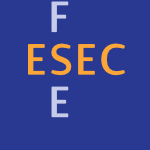 ESEC-1993-Buxton #on the #programming
ESEC-1993-Buxton #on the #programming- On the Decline of Classical Programming (JNB), pp. 1–9.
 ILPS-1993-Harland #logic #on the
ILPS-1993-Harland #logic #on the- On Goal-Directed Provability in Classical Logic (JH), p. 677.
 TLCA-1993-BarbaneraB #logic #reduction
TLCA-1993-BarbaneraB #logic #reduction- Extracting Constructive Content from Classical Logic via Control-like Reductions (FB, SB), pp. 45–59.
 HT-ECHT-1992-JonesS #flexibility #hypermedia
HT-ECHT-1992-JonesS #flexibility #hypermedia- Imagined Conversations: The Relevance of Hypertext, Pragmatism, and Cognitive Flexibility Theory to the Interpretation of “Classic Texts” in Intellectual History (RAJ, RS), pp. 141–148.
 KR-1992-Brachman #information management #representation
KR-1992-Brachman #information management #representation- “Reducing” CLASSIC to Practice: Knowledge Representation Theory Meets Reality (RJB), pp. 247–258.
 KR-1992-Lownie #logic
KR-1992-Lownie #logic- A Contraction Operator For Classical Propositional Logic (TML), pp. 720–731.
 CADE-1992-CaferraD #logic #proving #semantics
CADE-1992-CaferraD #logic #proving #semantics- Semantic Entailment in Non Classical Logics Based on Proofs Found in Classical Logic (RC, SD), pp. 385–399.
 CSL-1991-Schwichtenberg #proving
CSL-1991-Schwichtenberg #proving- Minimal from Classical Proofs (HS), pp. 326–328.
 LICS-1991-Murthy #evaluation #proving #semantics
LICS-1991-Murthy #evaluation #proving #semantics- An Evaluation Semantics for Classical Proofs (CRM), pp. 96–107.
 CLP-1990-GelfondL90 #logic programming #source code
CLP-1990-GelfondL90 #logic programming #source code- Logic Programs with Classical Negation (MG, VL), pp. 579–597.
 SIGMOD-1989-BorgidaBMR #named
SIGMOD-1989-BorgidaBMR #named- CLASSIC: A Structural Data Model for Objects (AB, RJB, DLM, LAR), pp. 58–67.
 VLDB-1989-BhargavaG #database
VLDB-1989-BhargavaG #database- Achieving Zero Information-Loss in a Classical Database Environment (GB, SKG), pp. 217–224.
 SIGIR-1988-Giger #concept #information retrieval
SIGIR-1988-Giger #concept #information retrieval- Concept Based Retrieval in Classical IR Systems (HPG), pp. 275–289.
 JICSCP-1988-BatarekhS88 #logic programming #semantics #source code
JICSCP-1988-BatarekhS88 #logic programming #semantics #source code- Semantical Equivalences of (Non-Classical) Logic Programs (AB, VSS), pp. 960–977.
 POPL-1987-TannenM
POPL-1987-TannenM- Computable Values Can Be Classical (VT, ARM), pp. 238–245.
 ESOP-1986-Boizumault #implementation #prolog
ESOP-1986-Boizumault #implementation #prolog- A Classical Implementation for Prolog-II (PB), pp. 262–273.
 DAC-1975-Quinn #physics #problem
DAC-1975-Quinn #physics #problem- The placement problem as viewed from the physics of classical mechanics (NRQJ), pp. 173–178.
 STOC-2015-AaronsonA #named #problem #quantum
STOC-2015-AaronsonA #named #problem #quantum STOC-2015-SchulmanS #algorithm #analysis #matrix
STOC-2015-SchulmanS #algorithm #analysis #matrix CIAA-2015-NakanishiY #automaton #problem #quantum
CIAA-2015-NakanishiY #automaton #problem #quantum ICML-2015-DingZSMM #consistency
ICML-2015-DingZSMM #consistency SEKE-2015-Wang #metric #problem
SEKE-2015-Wang #metric #problem ICMT-J-2012-AtkinsonGT15 #model transformation #modelling #multi
ICMT-J-2012-AtkinsonGT15 #model transformation #modelling #multi CSL-2015-AminiE #linear #logic #on the
CSL-2015-AminiE #linear #logic #on the CSL-2015-Berardi #comprehension #higher-order #induction
CSL-2015-Berardi #comprehension #higher-order #induction CSL-2015-BrotherstonV #logic
CSL-2015-BrotherstonV #logic LICS-2015-BaazLR #complexity #proving
LICS-2015-BaazLR #complexity #proving CIAA-2014-BianchiMP #automaton #on the #power of #quantum
CIAA-2014-BianchiMP #automaton #on the #power of #quantum ICPR-2014-SamantaC #classification #using
ICPR-2014-SamantaC #classification #using KR-2014-MarrellaMS #adaptation #calculus #named #process
KR-2014-MarrellaMS #adaptation #calculus #named #process KR-2014-RibeiroW #logic
KR-2014-RibeiroW #logic CGO-2014-GrosserCHSV #hybrid
CGO-2014-GrosserCHSV #hybrid PPoPP-2014-MaAC #algorithm #analysis #manycore #thread
PPoPP-2014-MaAC #algorithm #analysis #manycore #thread IJCAR-2014-Blanchette0T #induction #logic
IJCAR-2014-Blanchette0T #induction #logic STOC-2013-BrakerskiLPRS #fault #learning
STOC-2013-BrakerskiLPRS #fault #learning DLT-J-2012-Csuhaj-Varju13 #automaton
DLT-J-2012-Csuhaj-Varju13 #automaton DLT-J-2012-IwamaN13 #quantum #string
DLT-J-2012-IwamaN13 #quantum #string ICALP-v2-2013-Albers #problem #scheduling
ICALP-v2-2013-Albers #problem #scheduling RE-2013-AlspaughS #development #requirements
RE-2013-AlspaughS #development #requirements CSL-2013-Rieg #using
CSL-2013-Rieg #using LICS-2013-LiangM #logic
LICS-2013-LiangM #logic DRR-2012-MazalovW
DRR-2012-MazalovW SAS-2012-Alonso-BlasG #approach #cost analysis #on the
SAS-2012-Alonso-BlasG #approach #cost analysis #on the FLOPS-2012-AriolaDHNS #calculus #call-by #semantics
FLOPS-2012-AriolaDHNS #calculus #call-by #semantics DLT-J-2011-ZhengQL12 #automaton #finite #quantum
DLT-J-2011-ZhengQL12 #automaton #finite #quantum DLT-2012-Csuhaj-Varju #automaton
DLT-2012-Csuhaj-Varju #automaton DLT-2012-Iwama #quantum #string
DLT-2012-Iwama #quantum #string ICALP-v1-2012-AmbainisBBKOSV #game studies #quantum
ICALP-v1-2012-AmbainisBBKOSV #game studies #quantum ICALP-v1-2012-LaplanteLR #bound #detection #quantum
ICALP-v1-2012-LaplanteLR #bound #detection #quantum CSL-2012-Aschieri #axiom #interactive
CSL-2012-Aschieri #axiom #interactive CSL-2012-ChaudhuriHM #approach #calculus
CSL-2012-ChaudhuriHM #approach #calculus CSL-2012-HetzlS #first-order #logic
CSL-2012-HetzlS #first-order #logic LICS-2012-Herbelin #logic #proving
LICS-2012-Herbelin #logic #proving ICDAR-2011-GaoSWG #documentation #recognition #word
ICDAR-2011-GaoSWG #documentation #recognition #word STOC-2011-RegevK #communication #quantum
STOC-2011-RegevK #communication #quantum ICALP-v1-2011-AaronsonD #quantum
ICALP-v1-2011-AaronsonD #quantum ECIR-2011-TrieschniggH #question
ECIR-2011-TrieschniggH #question ICML-2011-KadriRPDR #functional #kernel
ICML-2011-KadriRPDR #functional #kernel ECOOP-2011-OstermannGKR #composition #information management
ECOOP-2011-OstermannGKR #composition #information management POPL-2011-JoishaSBBC #automation #compilation #effectiveness #optimisation #parallel #reuse #thread
POPL-2011-JoishaSBBC #automation #compilation #effectiveness #optimisation #parallel #reuse #thread TLCA-2011-AriolaHS #call-by
TLCA-2011-AriolaHS #call-by TLCA-2011-Miquel #bibliography
TLCA-2011-Miquel #bibliography CIAA-2010-CastiglioneNS #algorithm #automaton #product line
CIAA-2010-CastiglioneNS #algorithm #automaton #product line ICFP-2010-MazurakZ #concurrent #linear #logic #named
ICFP-2010-MazurakZ #concurrent #linear #logic #named CIKM-2010-NakatsujiFTUFI #music #novel #recommendation
CIKM-2010-NakatsujiFTUFI #music #novel #recommendation KR-2010-CiabattoniR #fuzzy #monad #on the
KR-2010-CiabattoniR #fuzzy #monad #on the FSE-2010-Johnson10a #research
FSE-2010-Johnson10a #research CSL-2010-Chaudhuri #logic
CSL-2010-Chaudhuri #logic CSL-2010-CoeckeP #category theory #quantum
CSL-2010-CoeckeP #category theory #quantum CSL-2010-Santo #canonical #deduction #towards
CSL-2010-Santo #canonical #deduction #towards ICLP-J-2010-HouCD #fixpoint #logic #rule-based
ICLP-J-2010-HouCD #fixpoint #logic #rule-based IJCAR-2010-Nivelle #logic
IJCAR-2010-Nivelle #logic LICS-2010-GuglielmiGS #logic
LICS-2010-GuglielmiGS #logic ICPC-2009-HindleGGH #automation #category theory #maintenance #scalability
ICPC-2009-HindleGGH #automation #category theory #maintenance #scalability ICALP-v1-2009-KobayashiGNR #communication #network #quantum
ICALP-v1-2009-KobayashiGNR #communication #network #quantum DHM-2009-McInnesSP #reliability #using
DHM-2009-McInnesSP #reliability #using ICEIS-AIDSS-2009-RoperoGLC #fuzzy #information management #logic #novel #web
ICEIS-AIDSS-2009-RoperoGLC #fuzzy #information management #logic #novel #web POPL-2009-BrotherstonC #logic #reasoning
POPL-2009-BrotherstonC #logic #reasoning CSL-2009-Munch-Maccagnoni
CSL-2009-Munch-Maccagnoni TLCA-2009-HerbelinZ #call-by #deduction #λ-calculus
TLCA-2009-HerbelinZ #call-by #deduction #λ-calculus TLCA-2009-Miquel
TLCA-2009-Miquel DATE-2008-RealCCDV #analysis #hardware
DATE-2008-RealCCDV #analysis #hardware STOC-2008-Gavinsky #interactive #quantum
STOC-2008-Gavinsky #interactive #quantum STOC-2008-JainKN #bound #communication #complexity #theorem
STOC-2008-JainKN #bound #communication #complexity #theorem FLOPS-2008-Kobayashi08a #backtracking #continuation
FLOPS-2008-Kobayashi08a #backtracking #continuation ICALP-C-2008-HallgrenKSZ #protocol #quantum #verification
ICALP-C-2008-HallgrenKSZ #protocol #quantum #verification ICPR-2008-SinghNGBSP #hybrid #random #using
ICPR-2008-SinghNGBSP #hybrid #random #using KR-2008-HinrichsG #finite #how #injection #logic #what
KR-2008-HinrichsG #finite #how #injection #logic #what CC-2008-KhedkerK #analysis #data flow #interprocedural #performance #precise #string
CC-2008-KhedkerK #analysis #data flow #interprocedural #performance #precise #string ICLP-2008-DeneckerV #integration #knowledge base #logic programming
ICLP-2008-DeneckerV #integration #knowledge base #logic programming ICLP-2008-NearBF #declarative #first-order #logic #named #proving #theorem proving
ICLP-2008-NearBF #declarative #first-order #logic #named #proving #theorem proving IJCAR-2008-BenzmullerPTF #automation #higher-order #logic #named #proving #theorem proving
IJCAR-2008-BenzmullerPTF #automation #higher-order #logic #named #proving #theorem proving IJCAR-2008-Otten #agile #logic #performance #proving #theorem proving
IJCAR-2008-Otten #agile #logic #performance #proving #theorem proving QoSA-2007-DuzbayevP #adaptation
QoSA-2007-DuzbayevP #adaptation ICDAR-2007-NamboodiriNJ #on the #using
ICDAR-2007-NamboodiriNJ #on the #using ICALP-2007-IwamaNRY #bound #communication #complexity #quantum
ICALP-2007-IwamaNRY #bound #communication #complexity #quantum LATA-2007-AblayevG #branch #complexity #quantum #simulation #source code
LATA-2007-AblayevG #branch #complexity #quantum #simulation #source code ECIR-2007-Broder #generative #information retrieval #web
ECIR-2007-Broder #generative #information retrieval #web SIGIR-2007-Al-Maskari #effectiveness #how #information retrieval #interactive #metric #question
SIGIR-2007-Al-Maskari #effectiveness #how #information retrieval #interactive #metric #question CSL-2007-FournierGGZ #logic
CSL-2007-FournierGGZ #logic CSL-2007-Miquel #calculus
CSL-2007-Miquel #calculus LICS-2007-Oliva #linear #logic
LICS-2007-Oliva #linear #logic ESOP-2006-SummersB #calculus #morphism #polymorphism
ESOP-2006-SummersB #calculus #morphism #polymorphism FoSSaCS-2006-PereiraP
FoSSaCS-2006-PereiraP ICALP-v1-2006-EpsteinL #problem #robust
ICALP-v1-2006-EpsteinL #problem #robust ICALP-v2-2006-DodisR #on the #quantum #using
ICALP-v2-2006-DodisR #on the #quantum #using SAC-2006-GotoC #analysis #logic
SAC-2006-GotoC #analysis #logic STOC-2005-Shi #communication #complexity #metric #quantum
STOC-2005-Shi #communication #complexity #metric #quantum MoDELS-2005-CraneD #modelling #uml
MoDELS-2005-CraneD #modelling #uml CSL-2005-VIICH #control flow #distributed #logic
CSL-2005-VIICH #control flow #distributed #logic SAT-2005-BelovS #logic #satisfiability
SAT-2005-BelovS #logic #satisfiability TLCA-2005-Herbelin #logic #on the
TLCA-2005-Herbelin #logic #on the TLCA-2005-LamarcheS #logic #proving
TLCA-2005-LamarcheS #logic #proving TLCA-2005-SelingerV #quantum #λ-calculus
TLCA-2005-SelingerV #quantum #λ-calculus STOC-2004-Bar-YossefJK #communication #complexity #exponential #quantum
STOC-2004-Bar-YossefJK #communication #complexity #exponential #quantum STOC-2004-SanthaS #quantum #query
STOC-2004-SanthaS #quantum #query ICALP-2004-Toftdal #analysis #effectiveness #logic #theorem
ICALP-2004-Toftdal #analysis #effectiveness #logic #theorem KR-2004-Rintanen #case study
KR-2004-Rintanen #case study CSL-2004-Hyland #abstract interpretation #calculus #proving
CSL-2004-Hyland #abstract interpretation #calculus #proving ICLP-2004-Munoz-HernandezM #implementation
ICLP-2004-Munoz-HernandezM #implementation LICS-2004-FuhrmannP #geometry #interactive #logic #on the
LICS-2004-FuhrmannP #geometry #interactive #logic #on the DAC-2003-Spirakis #challenge #design #question
DAC-2003-Spirakis #challenge #design #question STOC-2003-Gurvits #complexity #problem #quantum
STOC-2003-Gurvits #complexity #problem #quantum ICALP-2003-AriolaH #logic
ICALP-2003-AriolaH #logic CSL-2003-Brunnler #logic
CSL-2003-Brunnler #logic LICS-2003-LaurentR #linear #logic
LICS-2003-LaurentR #linear #logic ICML-2002-KamvarKM #algorithm #approach #clustering #modelling #using
ICML-2002-KamvarKM #algorithm #approach #clustering #modelling #using KR-2002-Lin #equivalence #logic programming #source code
KR-2002-Lin #equivalence #logic programming #source code CSL-2002-Hasegawa #linear #logic
CSL-2002-Hasegawa #linear #logic STOC-2001-Valiant #polynomial #quantum
STOC-2001-Valiant #polynomial #quantum ICALP-2001-Servedio #learning #quantum
ICALP-2001-Servedio #learning #quantum ICEIS-v1-2001-CarvalhoRMNK #fuzzy #logic #quantifier #using
ICEIS-v1-2001-CarvalhoRMNK #fuzzy #logic #quantifier #using CSL-2001-Akama #algebra #combinator #logic #towards #λ-calculus
CSL-2001-Akama #algebra #combinator #logic #towards #λ-calculus IJCAR-2001-HodasT #agile #first-order #implementation #linear #logic #named #proving #theorem proving
IJCAR-2001-HodasT #agile #first-order #implementation #linear #logic #named #proving #theorem proving TLCA-2001-Groote #deduction #normalisation
TLCA-2001-Groote #deduction #normalisation TLCA-2001-Laird #nondeterminism
TLCA-2001-Laird #nondeterminism CL-2000-Denecker #induction #logic
CL-2000-Denecker #induction #logic STOC-1999-Raz #communication #complexity #exponential #quantum
STOC-1999-Raz #communication #complexity #exponential #quantum ICLP-1999-KangT #linear #logic programming #programming language #static analysis
ICLP-1999-KangT #linear #logic programming #programming language #static analysis TLCA-1999-UrbanB #logic #normalisation
TLCA-1999-UrbanB #logic #normalisation STOC-1998-BuhrmanCW #communication #quantum
STOC-1998-BuhrmanCW #communication #quantum SIGIR-1998-Bakel #documentation #information retrieval #knowledge-based
SIGIR-1998-Bakel #documentation #information retrieval #knowledge-based HCI-SEC-1997-BaconS #3d #representation
HCI-SEC-1997-BaconS #3d #representation CADE-1997-KornK #logic
CADE-1997-KornK #logic CSL-1997-Faggian #logic #proving
CSL-1997-Faggian #logic #proving LICS-1997-BaillotDE #game studies #linear #logic
LICS-1997-BaillotDE #game studies #linear #logic TLCA-1997-Herbelin #game studies #reduction
TLCA-1997-Herbelin #game studies #reduction TLCA-1997-RetoreL #commutative #linear #logic
TLCA-1997-RetoreL #commutative #linear #logic ICPR-1996-LaumyDL #approach #comparison #optimisation
ICPR-1996-LaumyDL #approach #comparison #optimisation CADE-1996-RitterPW
CADE-1996-RitterPW CADE-1996-SchmittK #matrix #proving
CADE-1996-SchmittK #matrix #proving LICS-1996-Ong #category theory #proving #semantics
LICS-1996-Ong #category theory #proving #semantics SIGIR-1995-Meghini #image #logic #modelling #retrieval
SIGIR-1995-Meghini #image #logic #modelling #retrieval KR-1994-CohenH #learning #logic
KR-1994-CohenH #learning #logic ESEC-1993-Buxton #on the #programming
ESEC-1993-Buxton #on the #programming ILPS-1993-Harland #logic #on the
ILPS-1993-Harland #logic #on the TLCA-1993-BarbaneraB #logic #reduction
TLCA-1993-BarbaneraB #logic #reduction HT-ECHT-1992-JonesS #flexibility #hypermedia
HT-ECHT-1992-JonesS #flexibility #hypermedia KR-1992-Brachman #information management #representation
KR-1992-Brachman #information management #representation KR-1992-Lownie #logic
KR-1992-Lownie #logic CADE-1992-CaferraD #logic #proving #semantics
CADE-1992-CaferraD #logic #proving #semantics CSL-1991-Schwichtenberg #proving
CSL-1991-Schwichtenberg #proving LICS-1991-Murthy #evaluation #proving #semantics
LICS-1991-Murthy #evaluation #proving #semantics CLP-1990-GelfondL90 #logic programming #source code
CLP-1990-GelfondL90 #logic programming #source code SIGMOD-1989-BorgidaBMR #named
SIGMOD-1989-BorgidaBMR #named VLDB-1989-BhargavaG #database
VLDB-1989-BhargavaG #database SIGIR-1988-Giger #concept #information retrieval
SIGIR-1988-Giger #concept #information retrieval JICSCP-1988-BatarekhS88 #logic programming #semantics #source code
JICSCP-1988-BatarekhS88 #logic programming #semantics #source code POPL-1987-TannenM
POPL-1987-TannenM ESOP-1986-Boizumault #implementation #prolog
ESOP-1986-Boizumault #implementation #prolog DAC-1975-Quinn #physics #problem
DAC-1975-Quinn #physics #problem









